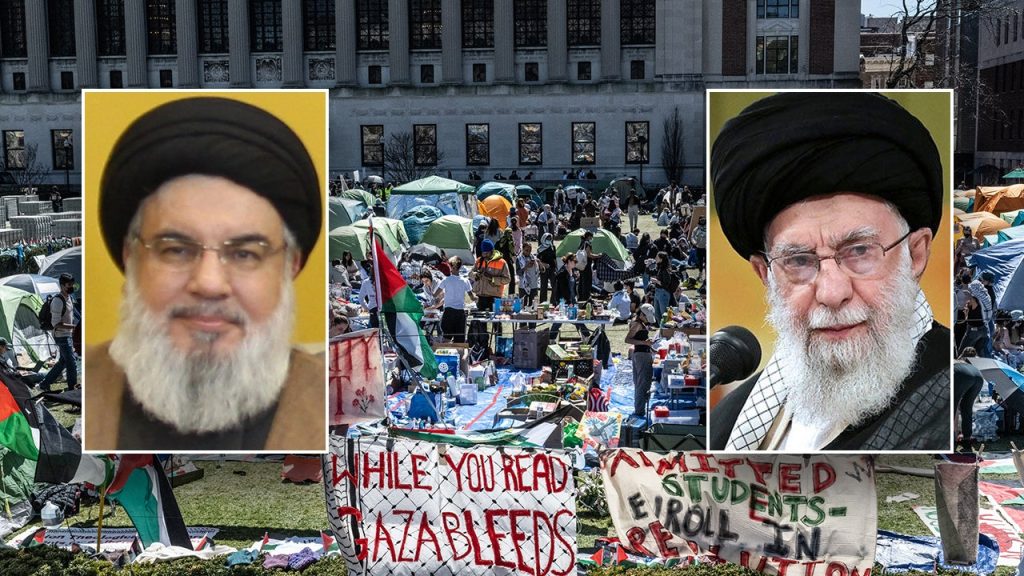Iran and its proxies have shown support for anti-Israel protests at American universities, viewing them as evidence of a growing anti-Israel sentiment in the United States. The protests, which have intensified at Ivy League universities such as Columbia, Harvard, and Yale, have sparked concern among Iranian officials and news outlets. Iranian Foreign Minister Hossein Amir-Abdollahian has expressed support for those criticizing Israel and its Prime Minister, Benjamin Netanyahu. The Iranian media has extensively covered the protests, highlighting demonstrations denouncing Israeli actions in Gaza and calling for academic institutions to sever ties with Israel.
Some leaders of Iranian proxies, such as Hezbollah’s Secretary-General Hassan Nasrallah, have commended the anti-Israel demonstrations in the U.S. Nasrallah has described the protests as influential and emphasized the importance of protest votes in pressuring the Biden administration to change its policies towards Israel. Iranian-backed groups, including Hamas, have also issued statements supporting the protests, which are seen as a means of influencing U.S. and Western decision-makers. The demonstrations have been portrayed as grassroots movements aimed at challenging the U.S. government’s support for Israel.
Steven Stalinsky, executive director of the Middle East Media Research Institute, has raised concerns about the organized nature of the anti-Israel protests, suggesting that they are not entirely grassroots but are influenced by figures connected to Iranian proxies. Khaled Barakat, a former member of the Popular Front for the Liberation of Palestine, has been involved in organizing events and courses promoting resistance against Israel. Barakat has connections to groups like Islamic Jihad and has espoused views aligning with the strategic vision of Iran. The prevalence of such influences in academic settings has raised alarm about the impact on student activism and perspectives.
The role of student groups like Students for Justice in Palestine has been highlighted as a factor in fueling anti-Israel sentiment on college campuses. These groups often push specific narratives and perspectives that amplify sympathy for Palestinian causes and advocate for activism against Israel. Some students have admitted to participating in protests without a full understanding of the issues at hand, suggesting a mix of genuine activism and ignorance. The curricular influence and instructor biases in Middle East studies have also been cited as factors influencing student perspectives and shaping their views on the Israeli-Palestinian conflict.
The coverage of anti-Israel protests by Iranian media outlets has portrayed the demonstrations as reflections of a broader shift in attitudes within American youth towards U.S. policies and support for Israel. The protests have been seen as challenging the status quo and influencing the approach of universities that have historically supported pro-Israel lobbying efforts. The coverage of the protests by Iranian outlets has highlighted specific incidents, such as banner displays and chants denouncing Israeli actions in Gaza, to emphasize the growing anti-Israel sentiment among students in the U.S. The widespread attention given to these protests indicates the strategic importance attached to influencing public opinion and swaying political decisions in favor of anti-Israel positions.
The involvement of Iranian proxies and their leaders in endorsing the anti-Israel protests underscores the geopolitical implications of these demonstrations and their impact on U.S. policy decisions. By aligning with student activism and leveraging the momentum of protest movements, groups connected to Iran seek to exert pressure on Western governments and shape public opinion in favor of anti-Israel positions. The support for these protests from Iranian officials and media outlets highlights the role of external influences in shaping domestic discourse and activism on college campuses. As the protests continue to evolve, the interplay between international interests and grassroots movements will likely remain a contentious issue in the broader debate on the Israeli-Palestinian conflict and U.S. foreign policy.


